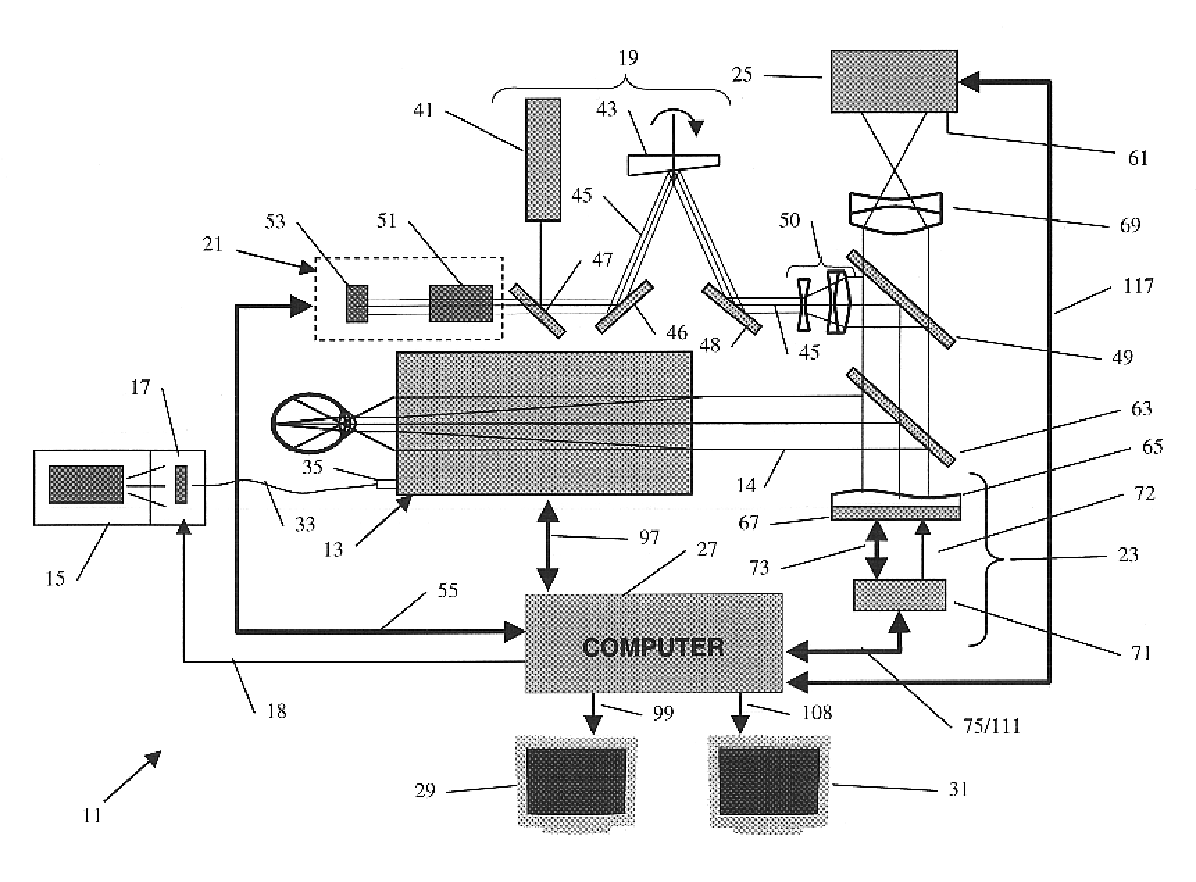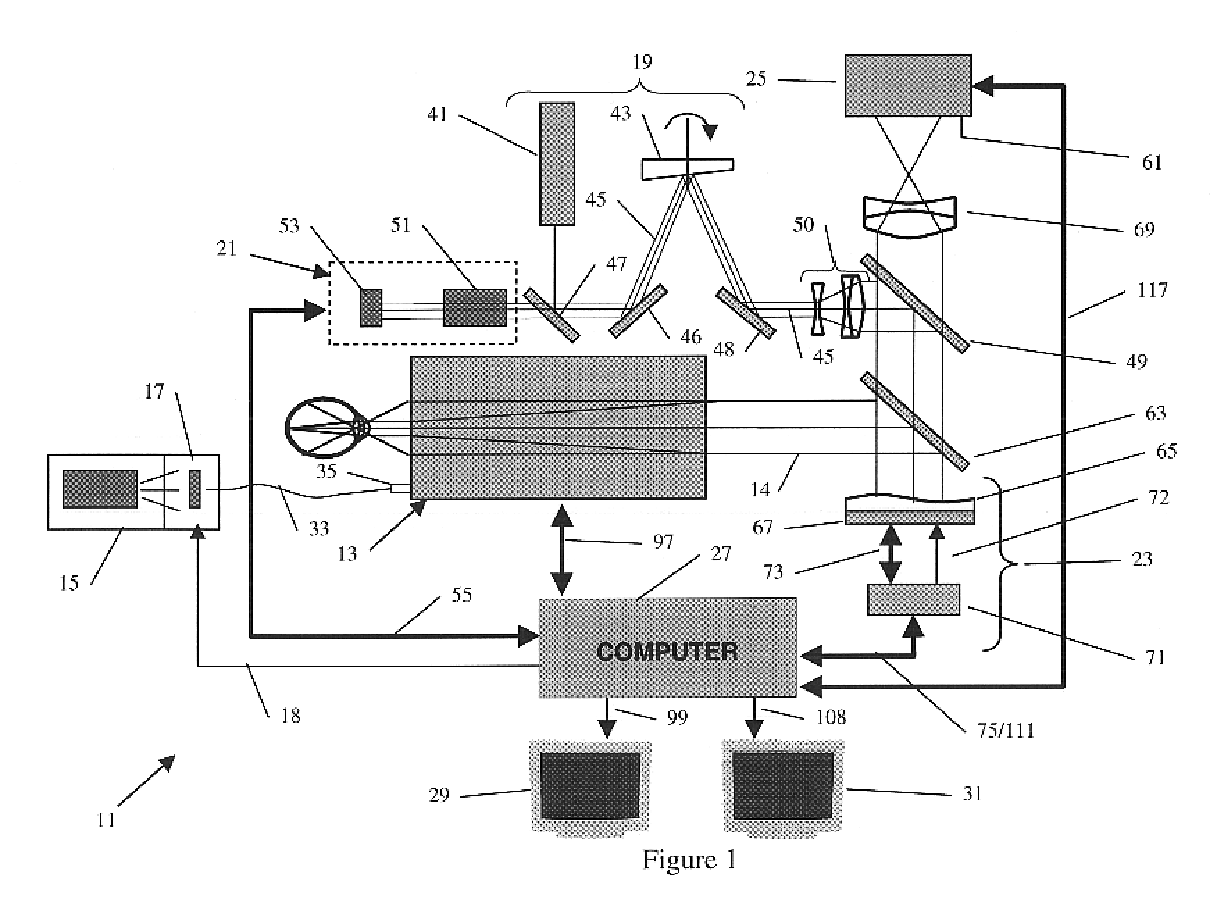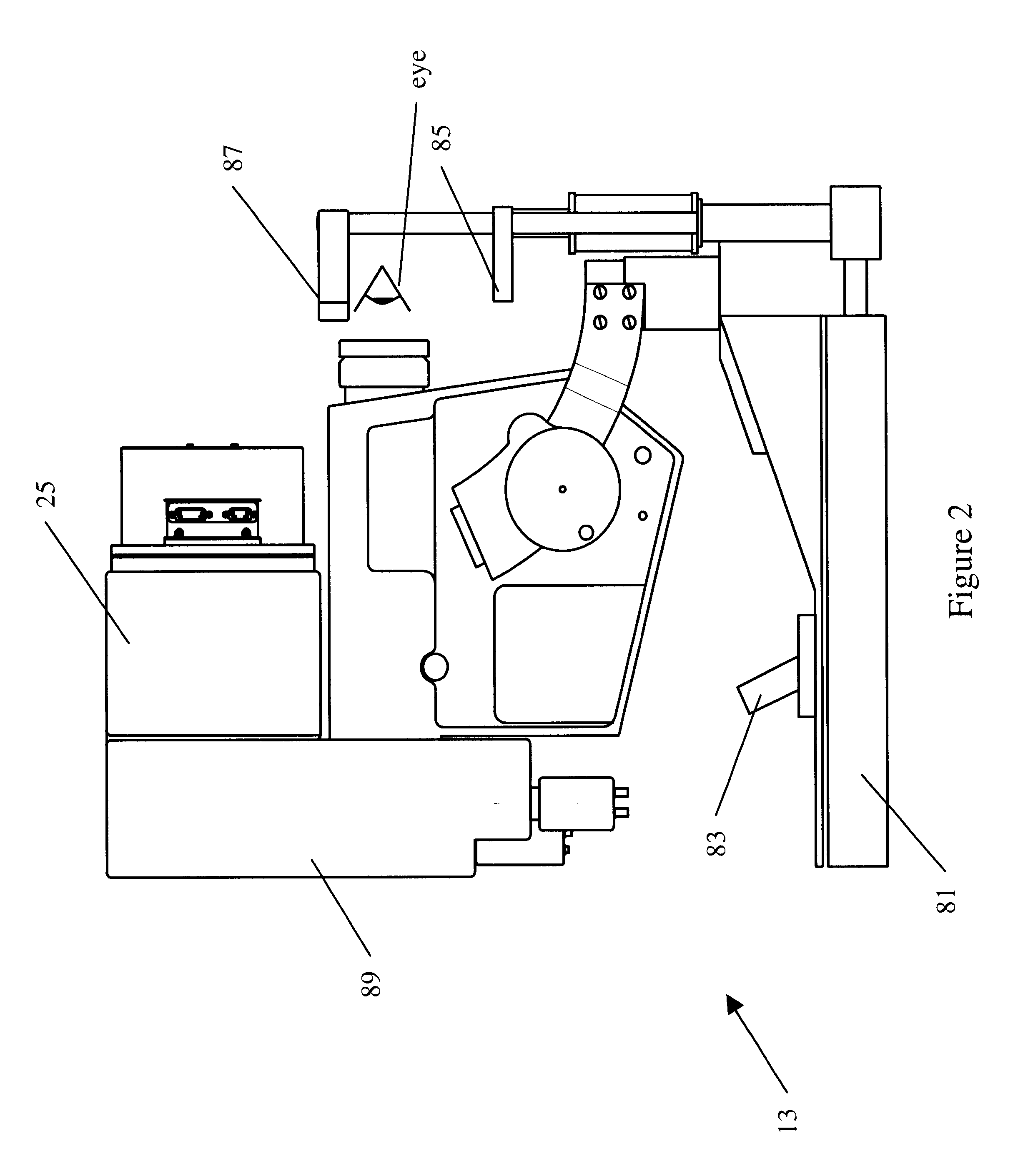High resolution, multispectral, wide field of view retinal imager
a retinal imager and multi-spectral technology, applied in the field of high resolution, multi-spectral, wide field of view retinal imager, can solve the problems of spatial resolution, inability to detect biochemical and cellular-scale features, and inability to detect them with current funduscopic instruments, so as to improve the level of opthmological care, increase the resolution and field of view of retinal imaging, and reduce the bandwidth
- Summary
- Abstract
- Description
- Claims
- Application Information
AI Technical Summary
Benefits of technology
Problems solved by technology
Method used
Image
Examples
Embodiment Construction
With reference to FIG. 1, improved retinal imaging system 11 includes fundus retinal imager 13, light source 15, filter assembly 17, dithered reference source generator 19, wavefront sensor 21, deformable mirror assembly 23, large format, high resolution detector 25, computer 27 and monitors 29 and 31.
In the present embodiment, fundus retinal imager 13 is a JST ZOMZ, Model KFG3, which provides collimated output 14. However, as those skilled in the art will appreciate other fundus imagers such as the Zeiss FF4 or FF5, the Topcon TRC-50 series or the Canon CF-60 series or CR5-45 can also be used. Light source 15 and filter assembly 17 are connected to fundus retinal imager 13 via fiber optic cable 33 and the standard fiber optic port 35 provided on fundus retinal imager 13. Source 15 includes an illumination lamp such as a tungston, xenon or metal halide lamp (not shown). Filter assembly 17, which is controlled by computer 27 via control line 18, includes up to 10 filters for use in c...
PUM
 Login to View More
Login to View More Abstract
Description
Claims
Application Information
 Login to View More
Login to View More - R&D
- Intellectual Property
- Life Sciences
- Materials
- Tech Scout
- Unparalleled Data Quality
- Higher Quality Content
- 60% Fewer Hallucinations
Browse by: Latest US Patents, China's latest patents, Technical Efficacy Thesaurus, Application Domain, Technology Topic, Popular Technical Reports.
© 2025 PatSnap. All rights reserved.Legal|Privacy policy|Modern Slavery Act Transparency Statement|Sitemap|About US| Contact US: help@patsnap.com



